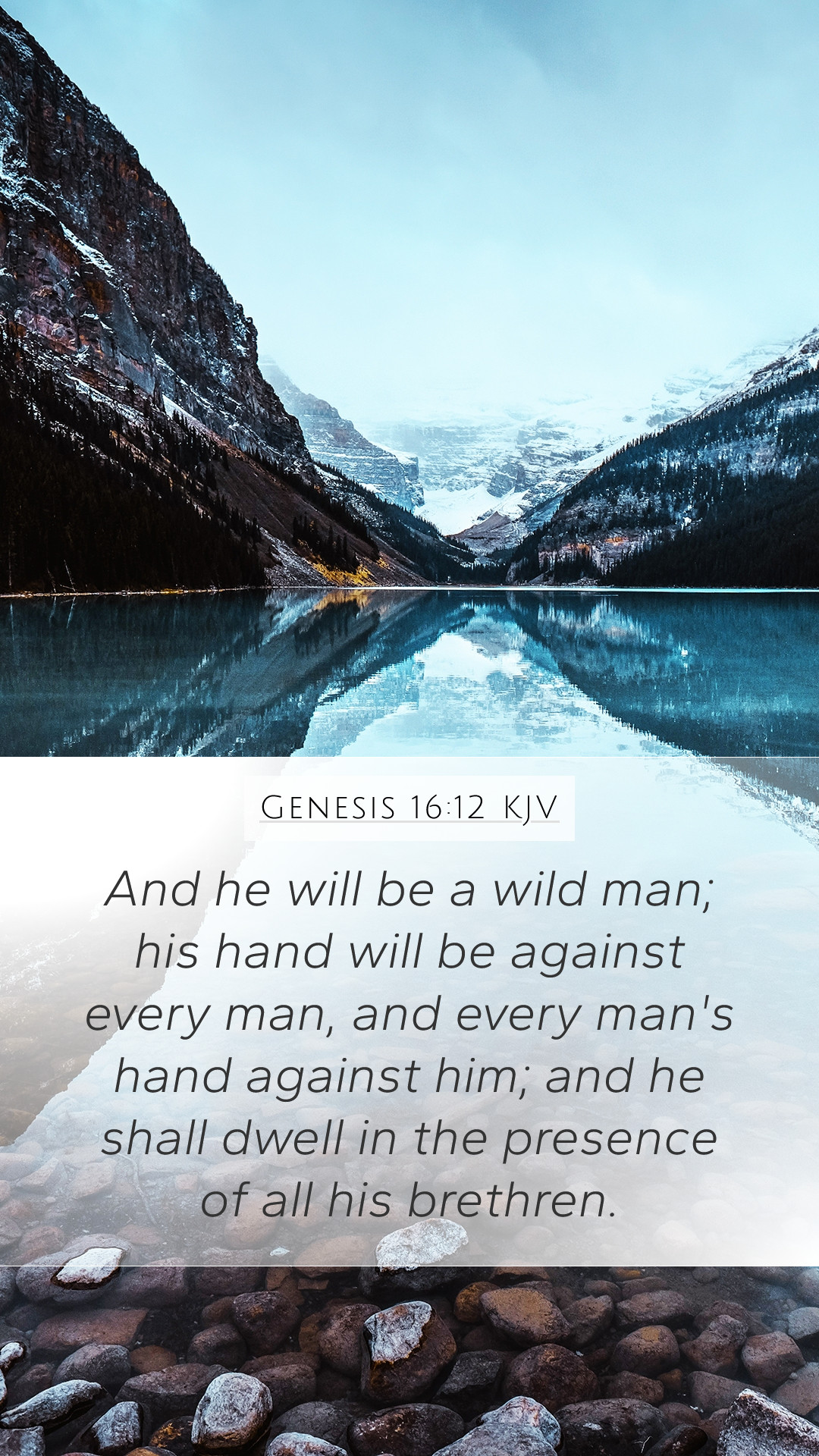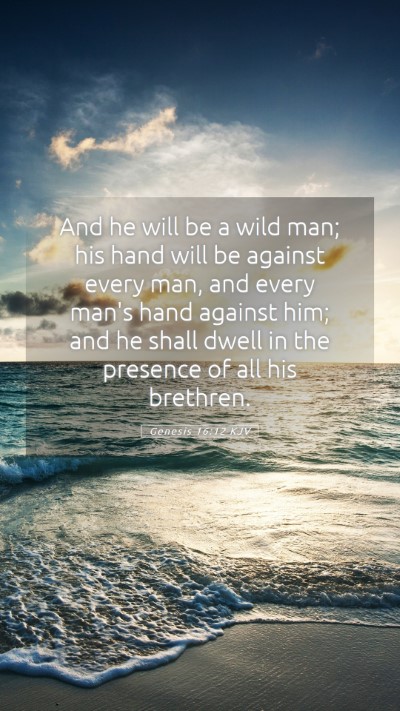Understanding Genesis 16:12
Genesis 16:12 states:
“And he will be a wild man; his hand will be against every man, and every man's hand against him; and he shall dwell in the presence of all his brethren.”
Overview of the Verse
This verse describes the character and future of Ishmael, the son of Hagar and Abraham. It reflects both the turbulent nature of his descendants and their relationship with others. Through this analysis, we gain insights into the complexities of divine purpose and human relationships.
Bible Verse Meanings
- Divine Prophecy: The declaration about Ishmael’s character serves as a prophecy regarding his lineage. Being "a wild man" suggests a life characterized by struggle and defensiveness.
- Conflict and Isolation: The phrase "his hand will be against every man" indicates a life of conflict, reinforcing the idea of isolation faced by Ishmael and his descendants, yet it also speaks to the ongoing struggles faced within families and societies.
- Presence and Relationship: "He shall dwell in the presence of all his brethren" denotes that while he may encounter conflict, he will also be surrounded by his kin, indicating a mixed existence of tension and community.
Historical Context
Ishmael’s significance in the biblical narrative extends beyond just his birth. His life represents God's grace towards Hagar, who was marginalized and mistreated. The social and familial conflicts within Genesis reflect larger themes found throughout Scripture, including God's plans for nations and individuals.
Commentary Insights
Matthew Henry's Commentary
Matthew Henry emphasizes that the prophecy about Ishmael reflects God's foreknowledge about the struggles he would face. Henry points out that this shows God’s sovereignty in determining the fates and characteristics of nations and individuals.
Albert Barnes' Notes
Albert Barnes adds a perspective on the significance of Ishmael's tumultuous character, suggesting it foreshadows the future conflicts between his descendants and those of Isaac, particularly the Israelites. This underscores the broader theme of division and tension within the biblical narrative.
Adam Clarke's Commentary
Adam Clarke reflects on the term "wild man," interpreting it as indicative of a person who thrives on chaos and conflict. He links this characterization to the broader implications of Ishmael's lifestyle and the repercussions it would have for his descendants.
Applications to Daily Life
This verse serves to illustrate the broader themes of God’s sovereignty over human affairs and the complexities of family dynamics. It encourages readers to reflect on their own relationships and the generations that follow.
Related Bible Cross References
- Genesis 21:17-21 - God's care for Hagar and Ishmael after Abraham’s decision.
- Galatians 4:22-31 - The allegory of Ishmael and Isaac representing two covenants.
- Isaiah 60:7 - Mention of Ishmael's descendants and their fate.
Conclusion
Genesis 16:12 provides significant insights into the character of Ishmael and his role within the biblical narrative. Understanding the meaning of this verse involves delving into its prophetic nature, historical context, and relevance to contemporary life, illustrating how biblical texts can inform our comprehension of conflict, community, and God's overarching purposes.
This analysis encourages ongoing inquiry into Bible verse meanings and interpretations, fostering a more profound understanding of Scripture. Such study can enrich personal faith and provide wisdom for navigating daily challenges.


